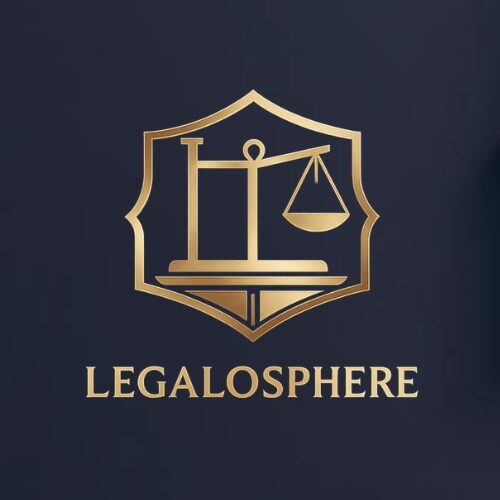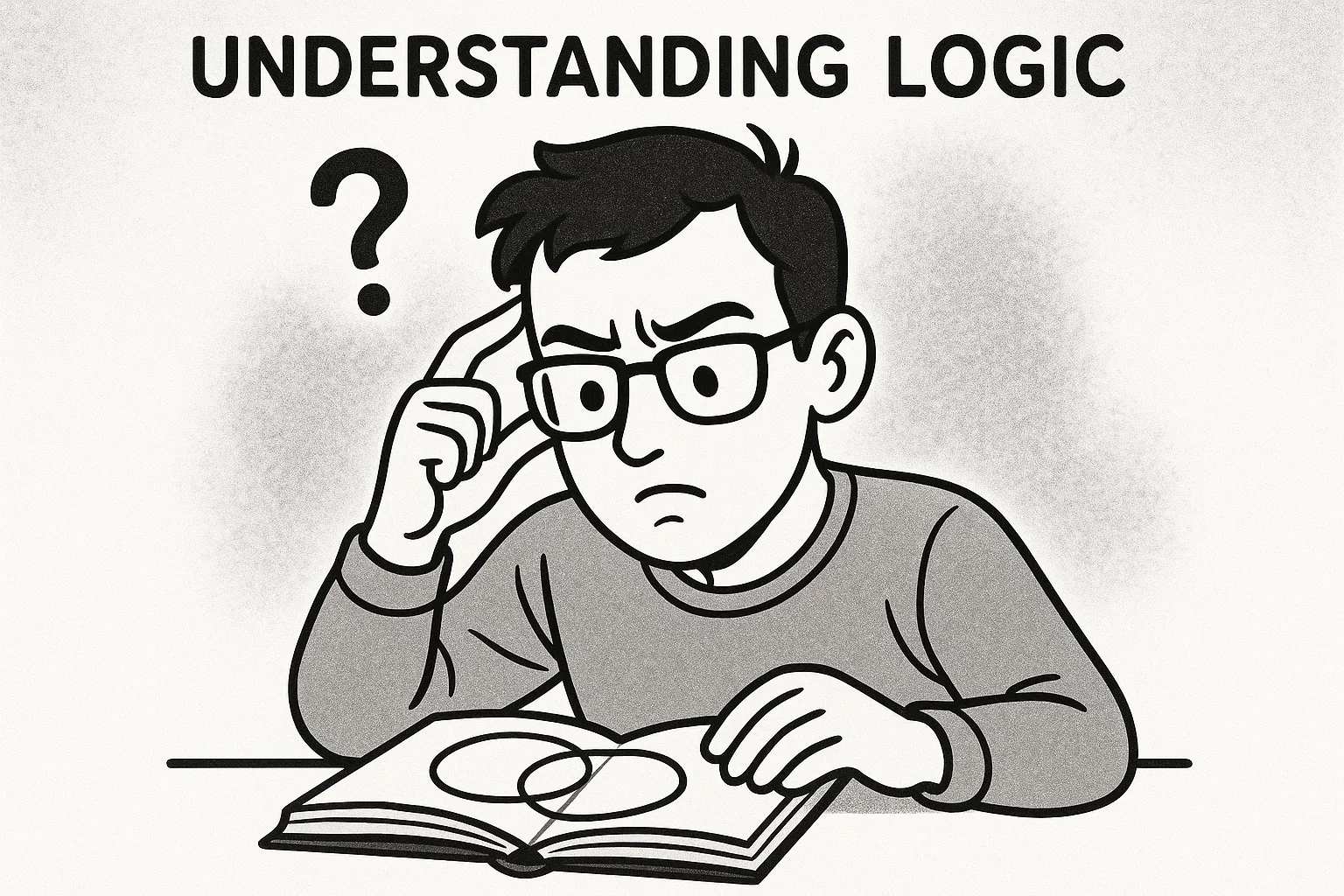By Rahul Pandey, B.A. LLB (H) {BHU}
A definition in logic is a clear and precise explanation of the meaning of a term or concept. In logical reasoning, definitions serve a fundamental role: they clarify terms to ensure consistent understanding and avoid ambiguity in arguments or proofs. Unlike casual or conversational definitions, logical definitions are crafted with exactness, often following strict rules to preserve truth and meaning.
Importance of Definitions in Logic
Definitions are the backbone of logical discourse. A single undefined or poorly defined term can derail an entire argument. When philosophers, scientists, or logicians engage in discussion, they begin by defining key terms. This is because clarity of language equals clarity of thought.
Without precise definitions:
- Arguments become vague or circular.
- Miscommunication and fallacies thrive.
- It’s impossible to verify the truth of premises.
Characteristics of a Good Definition
To serve its purpose in logic, a good definition must:
- Be clear and unambiguous
- Use simpler or more known terms
- Be neither too broad nor too narrow
- Not be circular
- Be positive, explaining what something is rather than what it is not
- Reflect common or accepted usage when applicable
- Include essential attributes (especially in intensional definitions)
Types of Definition in Logic
Definitions are classified into various types based on their purpose and form. These help in different logical contexts, from common discourse to scientific analysis.
Lexical Definition
A lexical definition gives the common, conventional meaning of a word — the one you’d find in a dictionary. It’s based on how the term is typically used in a language.
Example:
“Chair” – a piece of furniture designed to seat one person, usually with four legs and a back.
Stipulative Definition
A stipulative definition assigns a new meaning to a word, either for the first time or for a specific purpose. This is common in academic or technical writing.
Example:
“Smartship” – any sea vessel equipped with AI for autonomous navigation.
Precising Definition
Used to make a vague or general term more exact. It refines an existing lexical meaning for clarity, especially in legal, academic, or policy contexts.
Example:
“Minor” defined legally as a person under the age of 18.
Theoretical Definition
These definitions explain terms based on a particular theory or scientific framework.
Example:
“Atom” – a basic unit of matter consisting of a nucleus surrounded by electrons (in physics).
Persuasive Definition
This type attempts to influence attitudes by assigning a value-laden meaning to a term. Often seen in political or ideological discourse.
Example:
“Freedom” – the right to do whatever one wants without government interference.
Operational Definition
An operational definition specifies a term by the process or measurement used to define it.
Example:
“Intelligence” – the score obtained from an IQ test.
Extensional Definition
Also known as enumerative, this type defines a term by listing specific examples.
Example:
“Primary Colors” – red, blue, yellow.
Intensional Definition
This focuses on listing the necessary and sufficient conditions of the term.
Example:
“Triangle” – a three-sided polygon with interior angles summing up to 180°.
Formal vs Informal Definitions
- Formal Definitions use structure like genus and differentia.
- Informal Definitions rely on explanation and are used in everyday speech.
Verbal vs Non-verbal Definitions
- Verbal Definitions use words.
- Non-verbal Definitions may involve diagrams, equations, or demonstrations.
Connotative vs Denotative Definition
- Connotative: the implied or associated meaning.
- Denotative: the literal, explicit reference.
Explicit vs Implicit Definitions
- Explicit Definitions clearly state the meaning.
- Implicit Definitions imply meaning through usage or context.
Rules of Definition in Logic
To ensure definitions serve their purpose in logical discourse, they must follow these core rules:
- State the essential attributes
- Be unambiguous
- Be affirmative (not negative)
- Be non-circular
- Not be too broad or too narrow
Use of Genus and Differentia
A classic structure for definitions:
- Genus: the general category
- Differentia: the distinguishing features
Example:
A square is a rectangle (genus) with equal sides (differentia).
Avoiding Circular Definitions
A definition is circular when it includes the term being defined in its explanation. These are logically invalid.
Wrong:
“Leadership is the ability to lead effectively.”
Avoiding Ambiguity in Definitions
Good definitions avoid words with multiple meanings unless clarified. Ambiguous terms derail logical conclusions.
Avoiding Vagueness in Definitions
Words like some, many, or often are vague and should be avoided in logical definitions. They lead to interpretation issues.
Avoiding Negative Definitions
Rather than defining by what a thing is not, define by what it is.
Wrong:
“A bachelor is not married.”
Better:
“A bachelor is an unmarried adult male.”
Fallacies of Definition
Poor definitions introduce logical fallacies. Common ones include:
Too Broad Definitions
Include more than what should be included.
Example:
“A vehicle is anything with wheels.” (skateboards aren’t cars)
Too Narrow Definitions
Exclude valid instances.
Example:
“A bird is an animal that flies.” (ostriches and penguins are birds but don’t fly)
Circular Definitions
Define a term using itself.
Example:
“Honesty is when you act honestly.”
Obscure or Metaphorical Definitions
These use unclear or poetic language, making the definition unusable in logic.
Definition by Example
While helpful in speech, listing examples alone doesn’t capture the essence or criteria of a term logically.
Persuasive Definitions as Fallacies
These manipulate understanding by loading the definition with emotional or biased meaning.
Contextual Use of Definitions in Logic
Words may take on precise meanings based on argument context. Understanding the setting is key.
Teaching Definitions Effectively
When teaching logic, definitions should be accompanied by examples, counterexamples, and comparisons.
Definitions in Formal Logic
In symbolic logic, definitions must be strict and often rely on notation. Misdefined terms lead to invalid proofs.
Real-world Examples of Logical Definitions
- Legal: What qualifies as “consent” in law
- Scientific: What counts as a “species” in biology
- Philosophical: What constitutes “free will”
Conclusion: Mastering the Art of Logical Definition
Definitions are the heartbeat of logic. Whether you’re a student, educator, lawyer, or philosopher, mastering how to craft, evaluate, and apply definitions gives your arguments power, clarity, and integrity. As logic sharpens the mind, precise definitions sharpen logic itself.
FAQs
What are the main types of definitions in logic?
Lexical, stipulative, precising, theoretical, persuasive, operational, intensional, and extensional are the primary types.
Why are stipulative definitions important?
They introduce new terms or assign specific meanings, helping in clarity and innovation.
How can a definition be too broad or too narrow?
Too broad includes unrelated items; too narrow excludes relevant ones, both distorting the meaning.
What makes a definition circular?
When it uses the term itself or a synonym in its explanation, making it logically invalid.
Why avoid metaphorical definitions in logic?
They confuse rather than clarify and are open to interpretation.
How does an operational definition work in research?
It specifies how a concept is measured or identified in practice, ensuring replicability.

